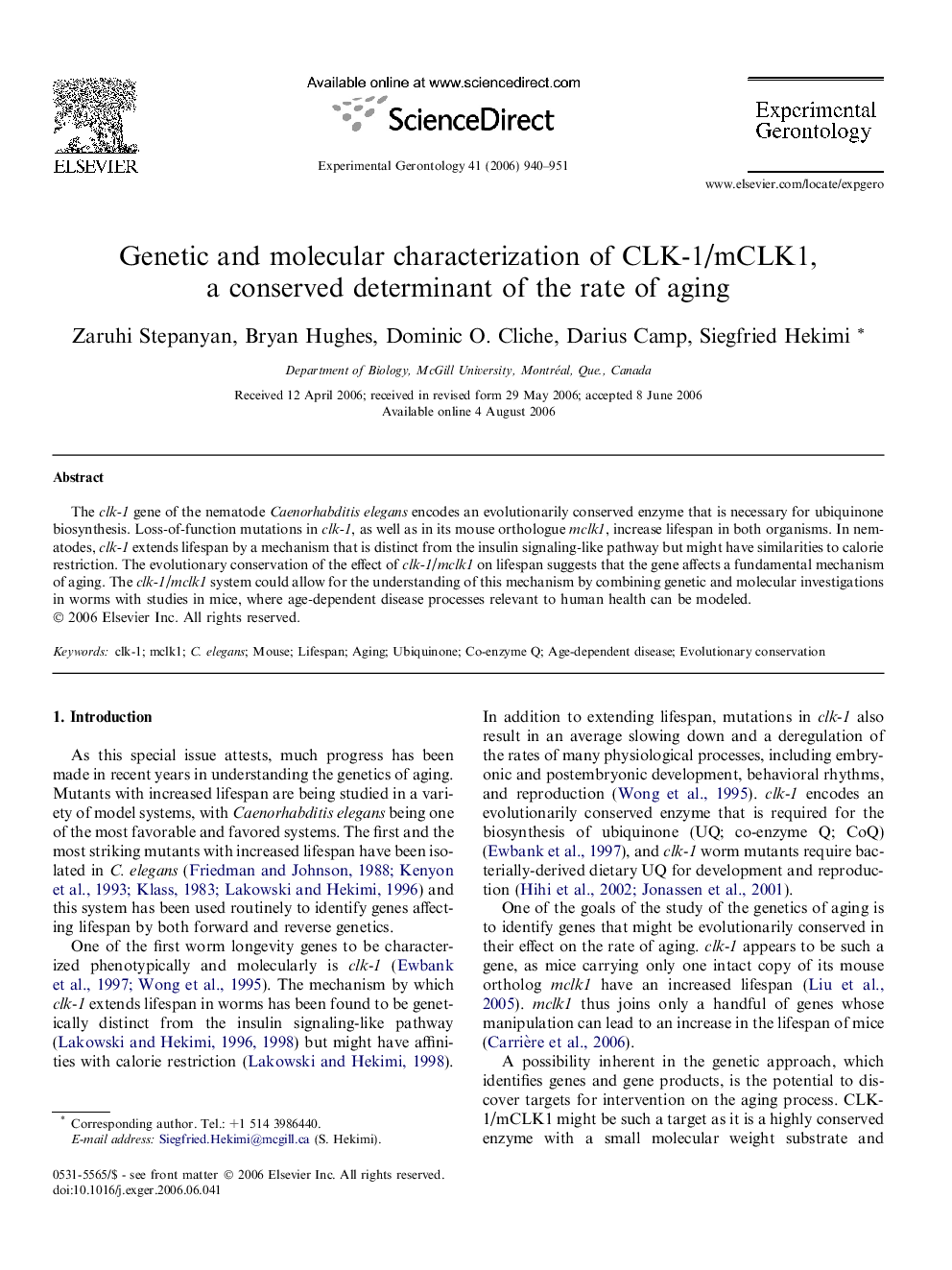| Article ID | Journal | Published Year | Pages | File Type |
|---|---|---|---|---|
| 1907071 | Experimental Gerontology | 2006 | 12 Pages |
The clk-1 gene of the nematode Caenorhabditis elegans encodes an evolutionarily conserved enzyme that is necessary for ubiquinone biosynthesis. Loss-of-function mutations in clk-1, as well as in its mouse orthologue mclk1, increase lifespan in both organisms. In nematodes, clk-1 extends lifespan by a mechanism that is distinct from the insulin signaling-like pathway but might have similarities to calorie restriction. The evolutionary conservation of the effect of clk-1/mclk1 on lifespan suggests that the gene affects a fundamental mechanism of aging. The clk-1/mclk1 system could allow for the understanding of this mechanism by combining genetic and molecular investigations in worms with studies in mice, where age-dependent disease processes relevant to human health can be modeled.
